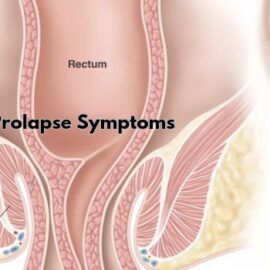
When you have rectal prolapse, you would like to know how best you can get better. In this regard, watching what you eat would help you because proper nutrition can support your health and lead to improved digestion and bowel functions during recovery.
Eating the right foodstuff leads to enhanced digestive function and general health with less likelihood of putting pressure on your rectum when passing stools. This is one of the main contributing factors that exacerbate rectal prolapse. Maintaining proper bowel habits and preventing constipation through a well-balanced diet allows management of this condition much easier.
A good diet also maintains healthy weight, which reduces pelvic floor pressure and aids muscles for proper rectal function, and it can improve comfort and overall daily being.
Proper Diet Plan For Rectal Prolapse
Rectal prolapse is the growth of the rectum from its normal position. It implies that there would be better matters with symptoms including excellent digestion and prevention of constipation. Some of the foods include the following:
- Fiber-rich fruits and vegetables: Among foods that are high in fiber are apples, pears, berries, carrots, and spinach. The fiber makes stool softening that is capable of easy passing with reduced straining on the rectum.
- Whole grains: Brown rice, oats, and whole wheat bread. All these sources contain fiber that ensures proper bowel movement.
- Legumes: Beans, lentils, and chickpeas. These food sources contain good fibers and proteins, thus ensuring that the digestive system keeps running.
- Flaxseeds and chia seeds: These seeds are more than just fiber-reliant because they also provide healthy fats. They help promote regular bowel movements and reduce straining.
- Probiotic foods: Yogurt and kefir contain good bacteria for gut health, while sauerkraut helps with digestion.
- Drink enough water. This makes the fiber to work well within your system thus preventing constipation, keeping your stools soft.
What Not to Eat?
Here are some foods to avoid if you have rectal prolapse:
- Spicy foods: They can irritate the digestive system and worsen symptoms.
- Processed foods: These often lack fiber, leading to constipation.
- Fried foods: Greasy foods are harder to digest and may cause discomfort.
- Dairy products: For some people, dairy can cause bloating and constipation.
- Red meat: It can be difficult to digest and may slow bowel movements.
- Caffeinated drinks: They can dehydrate the body, making constipation worse.


